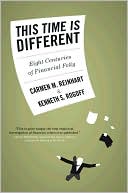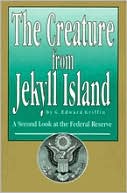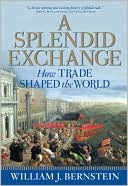Limits of Citizenship: Migrants and Postnational Membership in Europe
In many Western countries, rights that once belonged solely to citizens are being extended to immigrants, a trend that challenges the nature and basis of citizenship at a time when nation-states are fortifying their boundaries through restirictive border controls and expressions of nationalist ideologies. In this book, Yasemin Soysal compares the different ways European nations incorporate immigrants, how these policies evolved, and how they are influenced by international human rights...
Search in google:
In many Western countries, rights that once belonged solely to citizens are being extended to immigrants, a trend that challenges the nature and basis of citizenship at a time when nation-states are fortifying their boundaries through restirictive border controls and expressions of nationalist ideologies. In this book, Yasemin Soysal compares the different ways European nations incorporate immigrants, how these policies evolved, and how they are influenced by international human rights discourse.Soysal focuses on postwar international migration, paying particular attention to "guestworkers." Taking an in-depth look at France, Germany, the Netherlands, Sweden, Switzerland, and the United Kingdom, she identifies three major patterns that reflect the varying emphasis particular states place on individual versus corporate groups as the basis for incorporation. She finds that the global expansion and intensification of human rights discourse puts nation-states under increasing outside pressure to extend membership rights to aliens, resulting in an increasingly blurred line between citizen and noncitizen. Finally, she suggests a possible accommodation to these shifts: specifically, a model of post-national membership that derives its legitimacy from universal personhood, rather than national belonging.This fresh approach to the study of citizenship, rights, and immigration will be invaluable to anyone involved in issues of human rights, international migration, and transnational cultural interactions, as well as to those who study the contemporary transformation of the nation-state, nationalism, and globalization. Booknews Guestworkers, foreigners recruited to meet demands for labor in the industrialized countries of Europe, reflect a new concept of citizenship in the postwar era. Host countries had expected that foreign workers would remain only temporarily, outside the bounds of national polity, and would be sent home at will as productivity dropped or unemployment rose. Instead, guestworkers have formed permanent communities and been incorporated into school systems, welfare plans, and labor markets even though they lack formal citizenship status. Their experience demonstrates that rights and privileges once reserved for citizens of a state are being codified as personal rights, changing the meaning of citizenship. With four appendixes and an extensive bibliography. Annotation c. Book News, Inc., Portland, OR (booknews.com)
List of illustrationsAcknowledgments1Introduction12International Migration and the Nation-State System133Explaining Incorporation Regimes294Discourses and Instruments of Incorporation455The Organization of Incorporation656The Collective Organization of Migrants847The Membership Rights and Status of Migrants1198Toward a Postnational Model of Membership1369Conclusion163App. A List of State Agencies, Organizations, and Migrant Associations at which Interviews Were Conducted169App. B The Organizational Structure of Incorporation177App. C List of International Instruments that Provide Standards Applicable to International Migrants184App. D List of Intergovernmental and Nongovernmental Organizations Concerned with International Migration and Migrant Workers186Notes189Bibliography209Index235
\ BooknewsGuestworkers, foreigners recruited to meet demands for labor in the industrialized countries of Europe, reflect a new concept of citizenship in the postwar era. Host countries had expected that foreign workers would remain only temporarily, outside the bounds of national polity, and would be sent home at will as productivity dropped or unemployment rose. Instead, guestworkers have formed permanent communities and been incorporated into school systems, welfare plans, and labor markets even though they lack formal citizenship status. Their experience demonstrates that rights and privileges once reserved for citizens of a state are being codified as personal rights, changing the meaning of citizenship. With four appendixes and an extensive bibliography. Annotation c. Book News, Inc., Portland, OR (booknews.com)\ \








